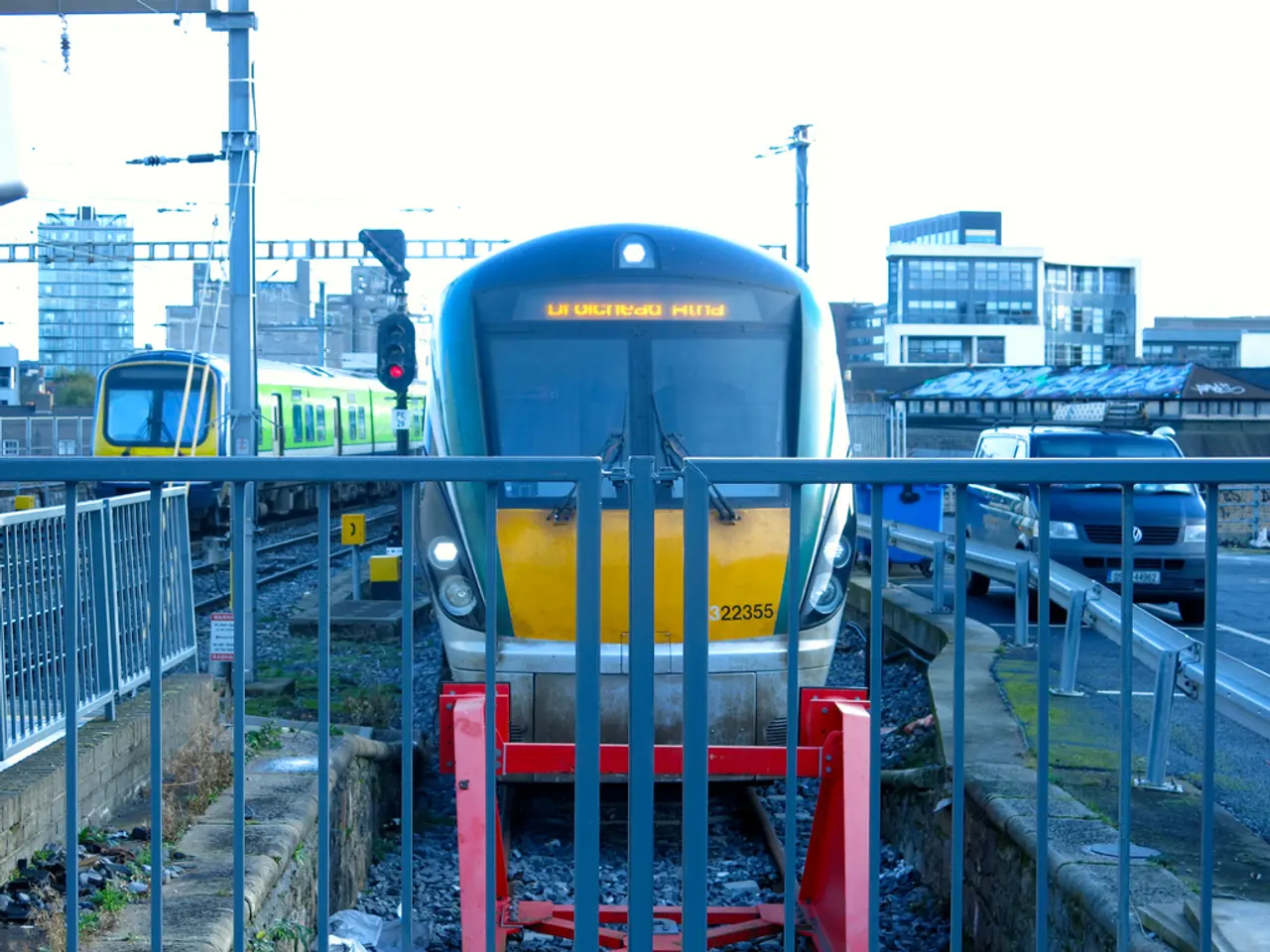'ICE Connectivity deficiency causing issues at Munich Airport'
Munich Airport Aims to Enhance Rail Connectivity and Become a Modern Mobility Hub
Munich Airport is taking steps to improve its rail connection in a bid to reduce a potential competitive disadvantage and position itself as a modern mobility hub. The airport recognizes the strategic importance of upgrading rail connections, with visible improvements to airport access by rail already underway.
Key measures include enhancing direct and frequent rail services, integrating transport modes efficiently, upgrading station infrastructure, deploying new energy-efficient trains, and long-term infrastructure development. The Bavarian Chamber of Industry and Commerce (BIHK) has suggested connecting Munich Airport to the ICE network and proposing additional express connections from cities such as Nuremberg, Stuttgart, Zurich, Innsbruck, Leipzig, and Vienna.
The proposed express connection would provide an alternative to the S-Bahn for travelers heading to the airport, with an express connection from Munich's city center every 30 minutes being considered. The S8 train line, which currently runs from the airport to various destinations including the city center, will run every 15 minutes with the completion of the Second Stammstrecke, a planned expansion that improves the rail infrastructure connecting Munich Airport to various regions.
According to BIHK CEO Manfred Gössl, disruptions and train cancellations on the S-Bahn are common, and there are no alternatives during peak travel times such as holidays. A study by the Munich ifo Institute suggests that with its own connection to the long-distance rail network, Munich Airport could become a "true mobility hub". This could lead to more companies settling in the airport region, new jobs being created, and economic growth occurring.
The airport is also expanding terminal buildings on both landside and airside, which could be coordinated with transport upgrades to consolidate the airport’s role as a mobility hub that connects air, rail, and road efficiently. The decision for the long-distance connectivity project currently lies with the federal government, with ongoing talks between Munich Airport and the federal government regarding the project.
[1] Munich Airport Integrated Report 2024 [4] Munich Airport Press Release, 2021 [5] Siemens Press Release, 2021
- The Bavarian Chamber of Industry and Commerce (BIHK) has proposed connecting Munich Airport to the ICE network, suggesting additional express connections from cities like Nuremberg, Stuttgart, Zurich, Innsbruck, Leipzig, and Vienna, aiming to position the airport as a modern mobility hub in the finance industry.
- As part of the plans to become a modern mobility hub, Munich Airport is collaborating with the automotive industry, deploying new energy-efficient trains for environmental sustainability in public-transit transportation.
- The enhanced rail connectivity at Munich Airport, with improvements in direct and frequent services, efficient transport mode integration, and upgraded station infrastructure, could attract more companies within the industry to settle in the airport region, leading to job creation and economic growth.




